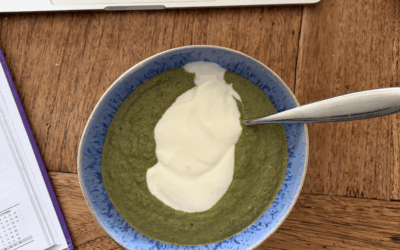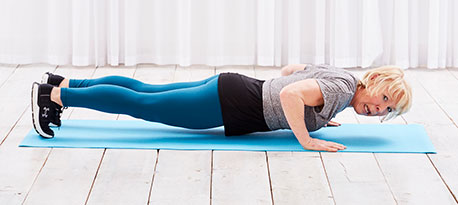Part One contained some important health issues which can affect men.
This Part Two blog is intended as a plan to help them make changes so that the possibility of those health issues doesn’t become a reality.
VISIT TO GP
There’s no way round this. The only way to get their prostate gland and cholesterol levels checked is a visit to the doc. While he’s there he may as well get his blood pressure seen to. Blood pressure monitors are easy to use and not expensive, so if you suspect his may be on the high side, it might be worth investing in one for home use.
FOOD
- Aim for a maximum of 30g of saturated fat per day. Try having a few meat-free evening meals every week, which focus around vegetables, beans and pulses. This will give more soluble fibre to his diet which helps bring down cholesterol. If you’re thinking the cheese route, then mature cheddar has 6.5g of saturated fat per 30g portion and reduced fat halloumi has just 3.5g. Let sat fat will help prostate and cholesterol.
- More brightly coloured fruit and veg and emphasis on variety. The lovely red colours (tomatoes, blueberries, blackcurrants etc) provide valuable antioxidants.
- More dark green veg. Broccoli can be disguised as broccoli rice.
- More protein in the meals – this discourages that mid afternoon slump and will help feed his muscle and bones. Protein will also help slow down the rate at which carbs are converted to glucose in the blood. Good, if you think there may be a diabetes risk. And if they are susceptible to stress. Suggest fewer sandwich work lunches and more left-over-dinners-from the-night-before, stuffed in a tupperware. That might totally ruin his credibility in the office – I’ll leave you to manage that one.
- More good fat, less sat fat. Salmon, nuts, seeds. Ground up flax seeds on salads or breakfast yogurt will avoid the seed-in-teeth situation.
- Potassium rich foods such as bananas, potatoes, sweet potatoes, tomatoes (cooked), tuna, yogurt. These will help alleviate blood pressure. Exercise can massively reduce blood pressure. I have a client who came to me because he didn’t want to take medication. Over five sessions, his BP is now generally stable at 125/72. (previously 141/85).
- Cut down on (or cut out altogether) evening treat sweets and chocolate. Save for one night a week only. Replace with absolutely nothing. Dinner has been served, eaten and enjoyed. Why the need for TV nibbling? It’s only a habit. They can sup some green tea if they’re feeling really righteous. Whopping antioxidant benefits but pick your brand, some are foul.
ALCOHOL
- Nightly drinking easily becomes a habit. You don’t need me to spell out the disadvantages. Skin, sleep, stress, weight gain, mental clarity. Stopping this habit might mean a few days of hell because their head and body will be screaming for it, but of course it is possible. But they have to want to. Save it for the weekends. You can buy some very nice half bottles these days (Waitrose half bottle White Burgundy ) which can discourage the “finish it off” syndrome. 375 ml between two of you. Pathetic you might think, but it will encourage sipping and savouring, not glugging and staggering.
- Water jugs with slices of lime or cucumber and mint might seem poncy. But they will hydrate him much better than chardonnay.
EXERCISE
The World Health Organisation (WHO), (so not just me, “some woman spouting off”) says this: “Insufficient physical activity is one of the leading risk factors for death worldwide”...and in particular ..” ….is a key risk factor for noncommunicable diseases (NCDs) such as cardiovascular diseases, cancer and diabetes”.
No messing with that, is there?
How much should they (and we) do? The WHO recommends that adults aged 18-64 should do at least 150 minutes of moderate-intensity aerobic physical activity throughout the week or do at least 75 minutes of vigorous-intensity aerobic physical activity throughout the week or an equivalent combination of moderate- and vigorous-intensity activity.
You can get extra health benefits …we’d like some of those wouldn’t we?…. by increasing their moderate-intensity aerobic physical activity to 300 minutes per week, or engage in 150 minutes of vigorous-intensity aerobic physical activity per week, or an equivalent combination of moderate- and vigorous-intensity activity.
- Daily activity helps, so getting off bus / train a couple of stops earlier or cycling to work a few days a week. Get a fit-bit or Apple watch if he’s gadget minded. If he travels a lot, maybe suggest some home workouts he can do in his hotel bedroom.
- If he has the stomach for it, then a mix of strength training with short, sharp cardio intervals will work wonders.
- Weight training is important for strength, bone density and for his testosterone levels (which will be dropping along with your oestrogen), so yoga, bootcamps, gym circuits, anything where he is putting his muscles out of their comfort zone. Anything which keeps challenging muscles (not just heart and lungs) is essential. Neither he (nor you) want them to be un-used. They will wither and shrink. That old adage…use it or lose it.
Obviously final choice of exercise has to come from him. Swimming, cycling, group exercise, yoga, gym, rowing, whatever. It will ALL help heart, stress and blood pressure, as well as contribute to a healthy weight.
One point needs drumming home. If he needs to lose fat, he will have to make changes to food. He cannot just flog his way through workouts day in, day out. Yes, he’ll be fitter and stronger, but he will still carry fat. As I mentioned in part one of this blog, obese people are much more likely to have heart attacks and strokes than those who are working to keep to a healthy weight.
SUPPLEMENTS
Encourage the taking of Vitamin D to boost both prostate and bone health. Vitamin C for fighting stress. If you can sneak in a Turmeric supplement, that’s also good for joints and overall health. You get what you pay for, so try and avoid supermarket brands. Check out your local health food store.
I hope this will help. Good luck.
Annie
x
For local pilates, circuit classes and bootcamp sessions in SW London click HERE.
For the 21 Day BLAST fat-loss and fitness programme, click HERE





